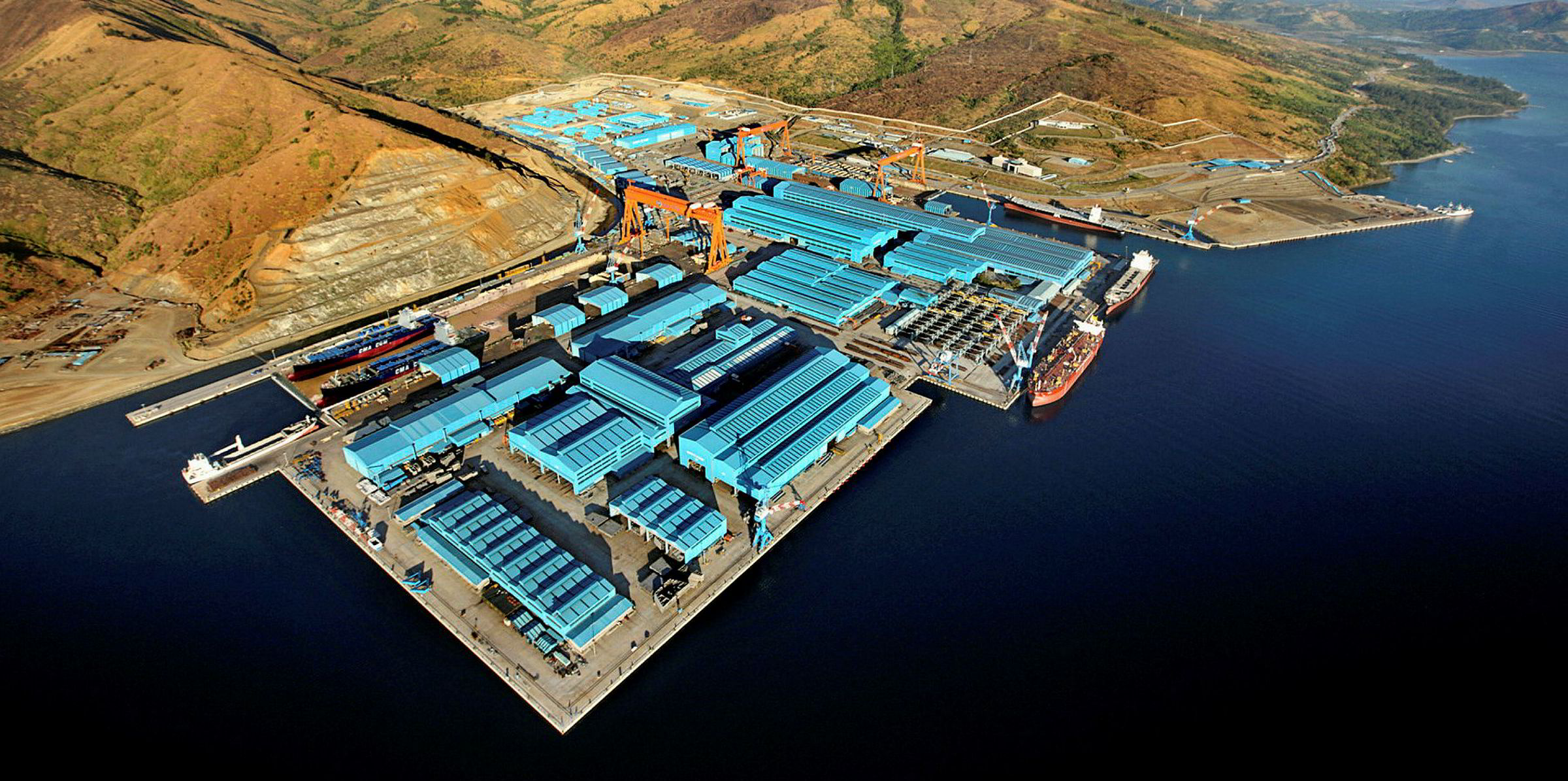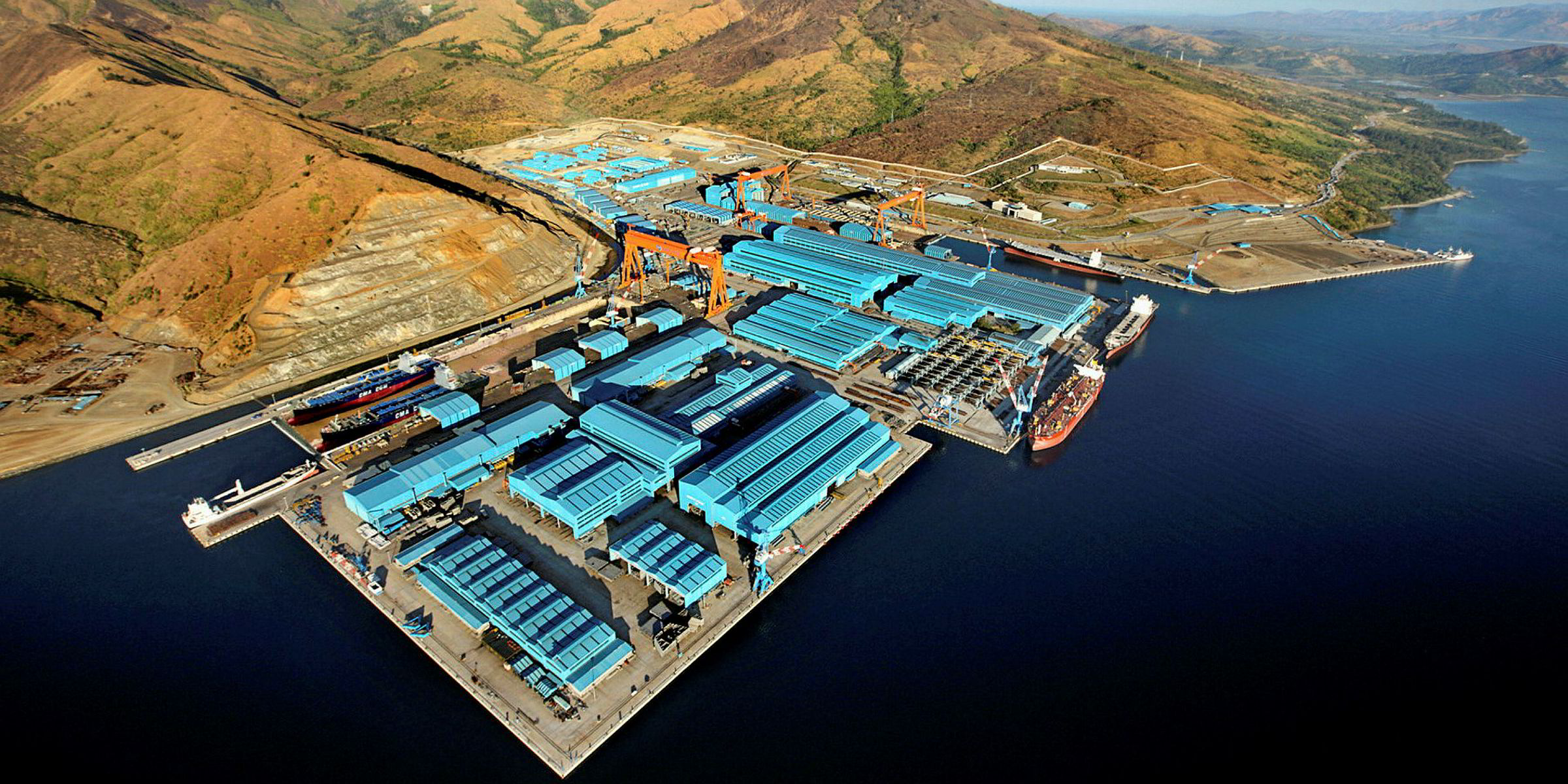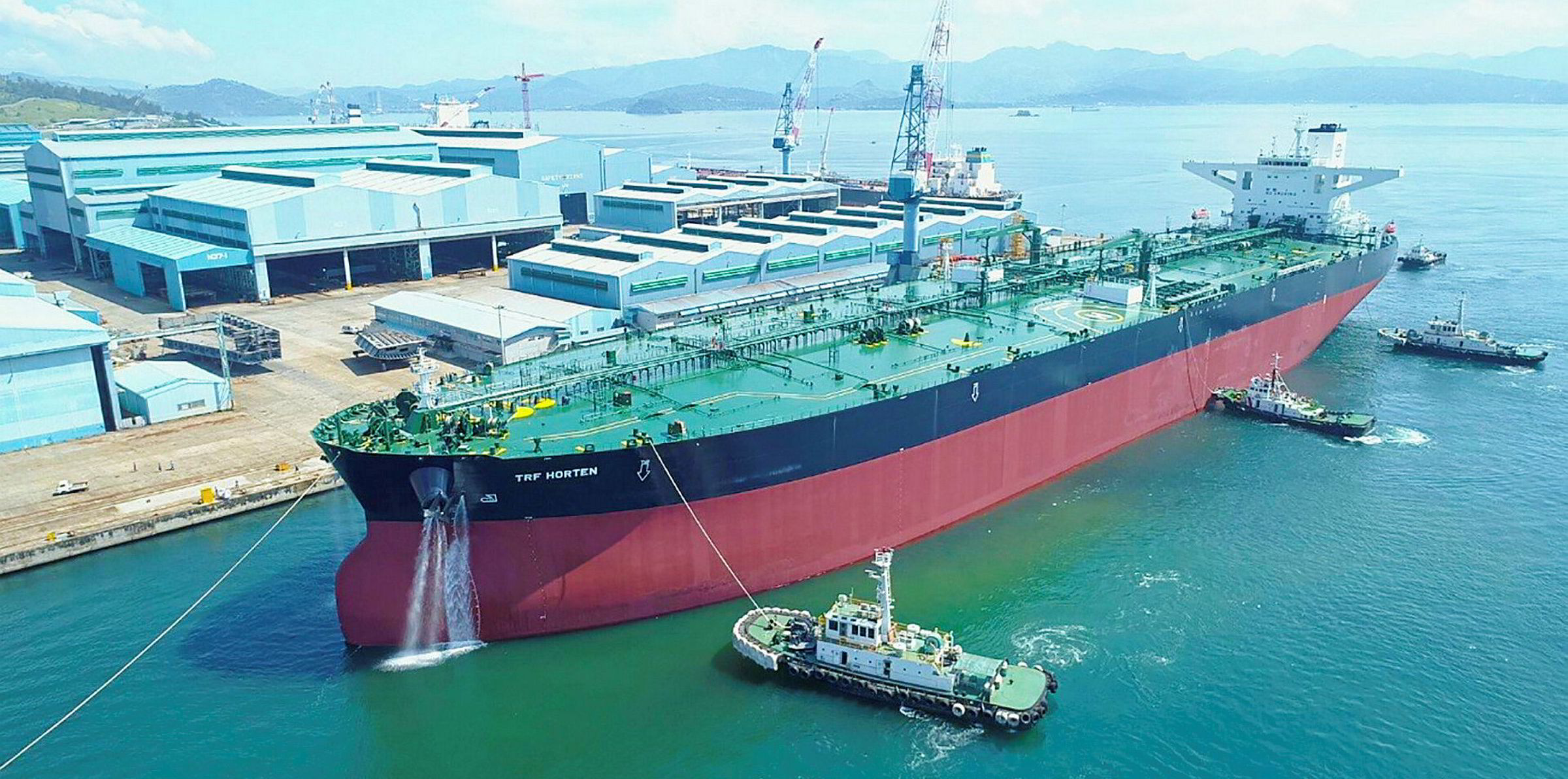It may be safe to surmise that the two Chinese shipbuilders that reportedly want to take over Hanjin Heavy Industries & Construction's yard in the Philippines are state-owned.
Government-backed companies would possibly have strategic and commercial interests in the facility north west of Manila.
China sees this region in South East Asia as a future hub for LNG shipping and energy exploration.
China National Offshore Oil Corp has recently obtained the go ahead to construct the country’s first LNG-import terminal alongside local fuel supplier Phoenix Petroleum.
China and the Philippines have also just signed a memorandum of understanding for joint development of wider oil and gas interests.
This is all quite surprising given the Philippines and other members of the Association of Southeast Asian Nations have competing territorial claims with Beijing in the South China Sea — largely connected to future potential hydrocarbon wealth.
Naval vessels from the Philippines and China engaged in a tense stand-off in 2012 over the disputed Scarborough Shoal.

Manila eventually chose to withdraw even though the island lies within an area mandated by the United Nations as part of the Philippines' coastal waters.
But quixotic Philippines president Rodrigo Duterte is keen to befriend Chinese counterpart Xi Jinping after apparently falling out with the US, a long-term ally and dwindling superpower in the region.
There is some irony that the Hanjin shipyard is at Subic Bay, a former base for the US Navy.
Hanjin Heavy Industries & Construction’s Subic Bay facility, which was founded in 2004 and has 16 new vessels on its orderbook, collapsed financially earlier this month after 7,000 staff lay-offs in the run up to Christmas.
The government of the Philippines admits it is desperately looking for a new buyer and said it has held talks with two unnamed Chinese outfits.
It is a mythical land of unicorns where the state stands completely free of markets. Few international policymakers argued against private banks being effectively nationalised after the financial crisis of 2008
The site covers 300 hectares (740 acres) and is one of the largest shipyards in the world, employing more than 28,000 at one point.
Vital to ambitions
It was seen as a vital component to the ambitions of the Philippines to become one of the largest vessel construction nations in the world.
But the Hanjin Heavy Industries group has been badly hit by the global shipbuilding downturn and overcapacity. It is seeking some retrenchment closer to its home base in South Korea.
Meanwhile in Seoul, the South Korean government is busy providing financial support to its local yards and shipowners.
The collapse of shipowning arm Hanjin Shipping this time two years ago sent shock waves through the country.
The state-owned Export-Import Bank of Korea pledged to spend $750m last year on loans and guarantees to the maritime sector.
A report last year highlighted “high risk” financial failures potentially affecting 40% of South Korea’s domestic shipping companies.
Eleven owners have just been reported to have applied for a government-backed sale-and-leaseback scheme to help “cash-strapped” small and medium-size companies.
Japanese condemnation
The market intervention by the South Korean government has triggered condemnation from its rival shipbuilding nation, Japan.
Will Tokyo take a tilt at Beijing if it turns out that the Chinese shipbuilders wanting to take over at Subic Bay are state-owned — or even private outfits pursuing the country’s foreign policy rather than alongside their own commercial interests with or without state-owned Chinese banking money? And could one even tell what hidden hand is at work here? Is this part of Xi’s Belt and Road initiative?
Questions about the role of the state have even now come into play in Europe over Brexit. This is because of a UK government decision to give a ferry contract to ship-less and seemingly clueless British start-up business Seaborne Freight — as my colleague Julian Bray commented on last week.
But what happens if Brexit takes place without a trade deal with the European Union?
UK politicians will surely open the state spending taps rather than allow the economy to slump and foreign investors to pull out.
It is a mythical land of unicorns where the state stands completely free of markets. Few international policymakers argued against private banks being effectively nationalised after the financial crisis of 2008.
But effectively making working people pay through austerity for that aid may have helped fuel populism and the likes of Brexit.
The wisdom or danger of government interventions will always be contentious and contested.





